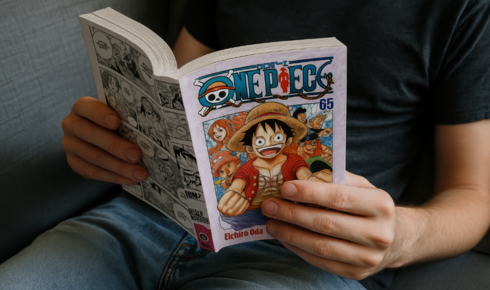One Piece isn’t just about chasing treasure across dangerous seas. It’s a powerful journey of the human spirit — a story that questions authority, praises resilience, and champions the strength of community and personal belief. With its vast cast of characters, complex world-building, and emotional storytelling, this manga provides readers with far more than entertainment. It offers reflection, hope, and a strong set of guiding values. In this article, you’ll uncover the real moral message behind One Piece and understand why it continues to resonate so deeply with fans across generations.
Freedom as the foundation of the adventure
From the very beginning of One Piece, it’s clear that the quest isn’t solely about the physical treasure. The legendary treasure, “One Piece,” serves as a symbol — one of absolute freedom. Monkey D. Luffy, the main character, doesn’t want to become Pirate King for wealth or dominance, but to be the freest person in the world. His journey is a philosophical one, built on the belief that true happiness lies in living according to your own will. This belief is shared by the entire Straw Hat crew. Each member has a deeply personal dream. Nami yearns to map the entire world. Sanji searches for the All Blue. Robin seeks the lost history of the world. These goals are not about status or glory; they are about self-liberation. The manga treats dreams as sacred, and real freedom comes through the pursuit of those dreams.
Luffy’s fight is often against oppression. Whether it’s tyrants, corrupt officials, or restrictive ideologies, the series consistently defends those who are trapped and silenced. Freedom in One Piece is moral, emotional, and social. And for fans who connect with these ideals, owning something tangible like One Piece figures offers a way to hold onto that message in their daily lives. Through dedicated retailers such as anime figures shop, the spirit of these beloved characters continues to inspire.
Dreams as a compass through life
In One Piece, dreams are not decorative — they are essential. The narrative constantly reinforces that dreams are the fuel that drives us forward. And in a world as unpredictable and perilous as the Grand Line, holding on to a dream becomes an act of bravery. Every crew member’s dream is met with ridicule or disbelief by others. Yet Luffy never mocks or doubts them. He trusts in his crew completely, showing us the importance of support and mutual respect when chasing ambitious goals.
Dreams in the face of despair
Characters in One Piece often suffer tragic pasts. Robin, for example, spends much of her life hunted and isolated. Yet she continues to seek truth. Usopp doubts his worth but never gives up on being a brave warrior. The dream is what keeps them going. It’s not merely hope — it’s identity. This concept mirrors real life. In difficult moments, our dreams remind us who we are and what we’re fighting for. One Piece teaches that even when everything else is lost, a dream can still shine like a lighthouse through fog.
Friendship as a moral compass
The true treasure of One Piece may very well be its portrayal of friendship. The Straw Hat crew operates not like a military group but like a chosen family. Their connection is based on trust, sacrifice, and acceptance. Friendship, here, is a moral foundation. Zoro’s silent sacrifice at Thriller Bark, Sanji’s battles with his own trauma to remain with the crew, or even Luffy’s desperate journey to save Ace — all speak to the unbreakable bonds forged through shared experience.
The contrast with the world
Unlike many other pirate crews in the series, the Straw Hats are built on equality. There is no hierarchy beyond respect for Luffy’s leadership. Everyone’s voice matters, and conflicts are resolved with care rather than dominance. In a world full of betrayals and political schemes, the Straw Hats show an alternative — a way of living based on loyalty, love, and humour. That, perhaps, is the most revolutionary idea in the series.
Challenging the concept of justice
One Piece offers a surprisingly nuanced take on justice. Rather than presenting it as a fixed concept, the series reveals the many shades of “right” and “wrong.” The World Government, for example, is positioned as a symbol of order. Yet it’s often cruel, hypocritical, and self-serving. This duality invites readers to question institutional authority. Characters like Akainu represent “Absolute Justice,” where results matter more than ethics. In contrast, others like Fujitora embody a more compassionate and evolving sense of justice. This diversity in perspective avoids moral clichés and instead reflects the complexities of real-world ethics.
The role of moral ambiguity
Villains in One Piece are rarely evil for evil’s sake. Doflamingo’s twisted worldview, Arlong’s deep-rooted prejudice, and even Crocodile’s hunger for power all stem from understandable — if flawed — origins. These shades of grey challenge the reader to think more deeply about what justice actually looks like. In this way, One Piece doesn’t teach us what to think, but how to think critically.
The enduring power of resilience
At its heart, One Piece is a story about never giving up. Every character has been broken, hurt, or betrayed — yet they stand back up. That’s the message: resilience is the real power. It’s not the Devil Fruits or battle strength, but the ability to keep going when everything seems lost. Every island visited in the series reflects a real-world issue — poverty, racism, tyranny. And yet, within each story arc, hope rises. The people fight back, characters grow, and communities rebuild. It’s a reminder that even in the darkest times, there’s always a way forward. One Piece suggests that the journey itself — not the treasure — is what matters most. And the strength to continue that journey defines who we are.
The true message behind One Piece
One Piece is more than action, humour, and dramatic arcs. It’s a philosophical journey rooted in values that many of us forget in adulthood — believing in dreams, choosing your own path, standing up for your friends, and questioning what we’re told is “right.” That’s the real treasure. And perhaps, like the One Piece itself, it’s something we each must discover in our own way.
Key points to remember
- Freedom is the ultimate goal of Luffy and his crew
- Dreams are treated as sacred and worth fighting for
- Friendship is the moral foundation of the story
- Justice is presented as complex and subjective
- Resilience is more powerful than brute strength





